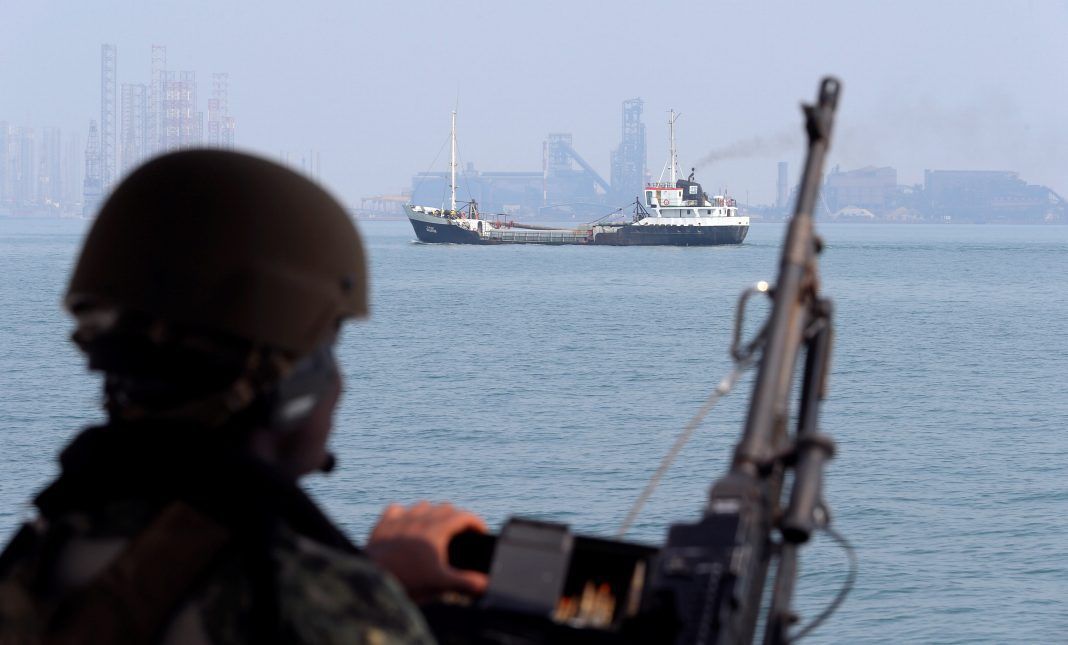By Abdulrahman Al-Rashed, Asharq Al-Awsat Newspaper
For the past few weeks, the international community has made concerted efforts at regional diplomacy to prevent a war in the Persian Gulf. However, tensions continue to rise between Iran and the U.S. and its regional allies with all sides increasing their military presence in the Strait of Hormoz.
Meanwhile, the U.S. has been trying to form an international military coalition to safeguard the Persian Gulf, Strait of Hormuz, the Bab el-Mandeb Strait (BAM) and the Gulf of Oman. The plan calls for the U.S. to provide command ships and lead surveillance while its allies’ vessels patrol those waters with their nation’s flags.
The naval coalition’s primary aim is to prevent a war between Iran and the Gulf states and also to stop Tehran from selling its oil. By increasing political and economic pressures on Iran and boosting its military presence in the Persian Gulf, the U.S. hopes that Tehran will abandon its regional ambitions and comply with the 12 conditions set by Washington in May 2018 for reopening the nuclear negotiations with the view towards easing economic sanctions.
The U.S. and its allies’ two-pronged strategy aims to reduce Iranian oil exports to zero and prevent a war in the region at all cost. However, this is a complicated plan which may work for another year and a half until the 2020 U.S. elections, after which Washington may continue along the same path or adopt an entirely new approach, depending on whether President Donald Trump will win or lose the election.
Iran and the U.S. know the significance of this period during which it is unlikely that war would break out in the Persian Gulf, or the Islamic Republic regime would collapse. Also, neither side may be interested in talks. The situation calls for steady nerves and cool heads. Both sides must remain calm and refrain from any irrational and hasty actions that could spark a disastrous and unwanted war.
There could be a few possible dangers between now and the next U.S. presidential election in 2020. Iran will continue to escalate tensions in the region, and might even commit a hostile act including using Shia militia groups under its control to attack the U.S. bases and its interest in the Gulf. Also, Tehran’s plan to enrich uranium beyond the level agreed by the Joint Comprehensive Plan of Action (JCPOA), better known as the Iran nuclear deal, would give Israel a “legal” excuse to strike the country’s nuclear sites in the coming months.
Iran will undoubtedly respond militarily to an Israeli attack. However, it is hard to know what Tehran would do exactly, given that it cannot match Israel’s superior military capability. The Islamic Republic knows that any missile attack on Israeli cities will prompt the country to unleash its military might and inflict irreparable damage on Iran. Therefore, Iran will most likely target smaller Gulf states, and instead will use Lebanese Hezbollah to attack Israel.
Regional states and Western powers are facing a complicated and dangerous situation, and that is why they are forming a coalition against Iran. The main aim of the coalition is to send a message to Tehran that any possible war would not be only a Trump’s plan or an American project. Coalition leaders must make their respective nations understand that they do not seek armed conflict but are prepared to defend their countries and nations if they are forced into war.
Iran considers its economic isolation an act of war. However, the U.S. claims that it has not prevented Iranian oil tankers from leaving Bandar Abbas in the Persian Gulf and moving freely in international waters. In principle, nothing is preventing Iran from selling its oil. However, countries which are engaged in business with the U.S. do not buy Iranian oil for fear of being penalized. Iran must have realized by now that its hostile foreign policy has not helped its cause and standing in the international community. Tehran knows that it faces enemies that possess stronger political, economic and military strength, and, therefore, has no option but to curb its regional ambitions, expansionist policies, and aggressive behavior.
No one wants to start a war with Iran. However, could the Islamic Republic sit idle until the crippling economic sanctions topple the regime? It would seem that Iranian leaders have not made their final decision. They have been trying several approaches, including attacking oil tankers in the Strait of Hormoz, threatening military action in the region and using the nuclear program to blackmail the EU country members.
[Note: Abdulrahman Al-Rashed is the former editor-in-chief of Asharq Al-Awsat, and the Arabic-language weekly magazine Al-Majalla. Asharq Al-Awsat is a London-based Arabic-language newspaper.]
[Translated from Persian by Fardine Hamidi]


